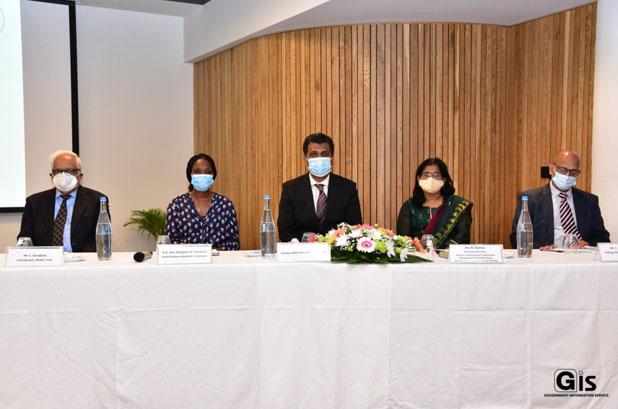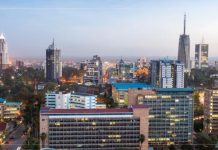Africa-Press – Mauritius. A half day workshop to mark the International Day for the Preservation of the Ozone Layer 2021 was organised, this morning, at the Caudan Arts Centre, in Port-Louis.
The Minister of Environment, Solid Waste Management and Climate Change, Mr Kavydass Ramano; the United Nations (UN) Resident Coordinator for Mauritius and Seychelles, Ms Christine Umutoni; the Chairperson of Media Trust, Mr Chayman Surajbali, and other personalities were present.
The objective of the workshop was to raise awareness of journalists regarding the Montreal Protocol and latest developments in relation thereto, as well as to underscore the importance of ozone layer protection. Factsheets on Ozone layer protection were also launched on the occasion.
In his keynote address, Mr Kavydass Ramano highlighted that the International Day for the Preservation of the Ozone Layer commemorates the date of the signing of the Montreal Protocol on Substances that Deplete the Ozone Layer in 1987, and is an opportune time to reflect on how respective countries can gear up the necessary actions to save the planet in accordance with the objectives of the Protocol and its amendments.
Mauritius, he underlined, has been a signatory to the Montreal Protocol since 1992. As part of measures taken, Chlorofluorocarbons (CFCs) have been successfully phased out in Mauritius since 2005, five years ahead of the global phase-out schedule for developing countries, Mr Ramano pointed out.
In line with obligations under the Montreal Protocol and its various amendments, Minister Ramano underscored that Mauritius launched its hydrochlorofluorocarbons (HCFC) Phase-out Management Plan (HPMP) in 2012 with the objective of a complete phase-out by 2025.
Currently, the implementation of the HPMP is in full swing and Mauritius has managed to reduce its HCFC consumption from 8 Ozone Depleting Potential Tons in 2013 to 2.14 in 2020, he added.
Furthermore, the Minister underlined that at the 28th Meeting of the Parties to the Montreal Protocol held in Kigali in October 2016, an agreement was reached by all Parties to adopt the Kigali Amendment to phase down the production and consumption of Hydrofluorocarbons (HFCs), which Mauritius ratified on 1st October 2019.
In this context, the Executive Committee of the Multilateral Fund for the Implementation of the Montreal Protocol, at its 87th meeting held in July 2021, approved funding of USD 170,000 for the preparation of a Kigali HFC Implementation Plan for Mauritius.
Minister Ramano reiterated that Government is committed to adopt a proactive approach to building the country’s resilience to the impacts of climate change as well as to embark on a low-emission pathway.
On this score, he indicated that a series of measures is being implemented, namely: the promotion of renewable energy technologies such as solar water heaters and photovoltaics; the development of a renewable energy roadmap; the development of an electric vehicle roadmap; the implementation of an alternative public transport system; the development of a strategy to promote the “circular economy” in the waste sector; national tree planting campaigns; implementation of coastal rehabilitation works; land drainage management; and disaster risk reduction measures.
For her part, Ms Umutoni underscored that the World Ozone Day is not only a celebration of the achievement of a coordinated approach in protecting the ozone layer and the phasing out of ozone depleting chemicals, but also a reminder that working together in harmony and for the collective good is more essential than ever, especially to address the pressing challenges of our time such as COVID-19 and climate change.
She lauded the Government of Mauritius, the private sector and the civil society for all their efforts to ensure that Mauritius meets its commitment under the Montreal Protocol.
This workshop today, she added, is another example of the inclusive approach adopted by the Government in achieving its objectives under the Montreal Protocol.
As for Mr Surajbali, he emphasised that the workshop is intended for journalists as they have a crucial role to play in tackling the issue of Ozone depletion through the dissemination of proper information as well as enlightening the public about this global issue.







